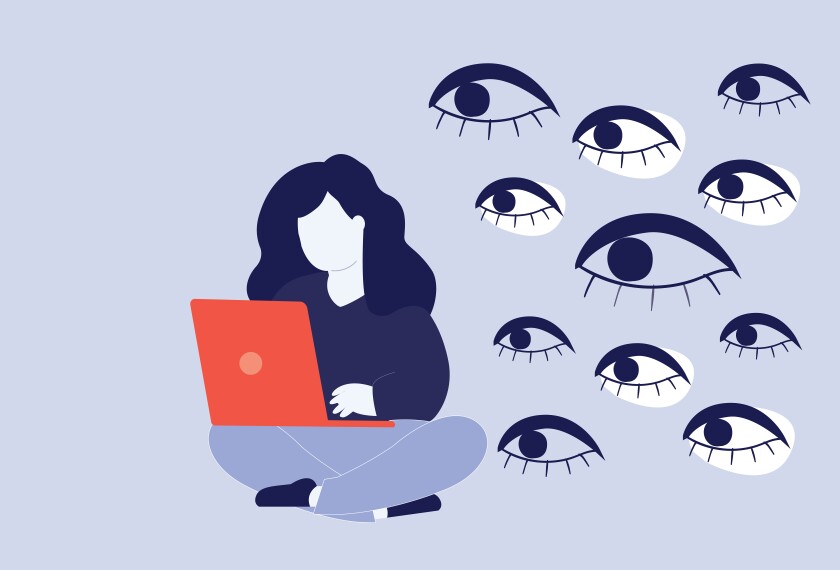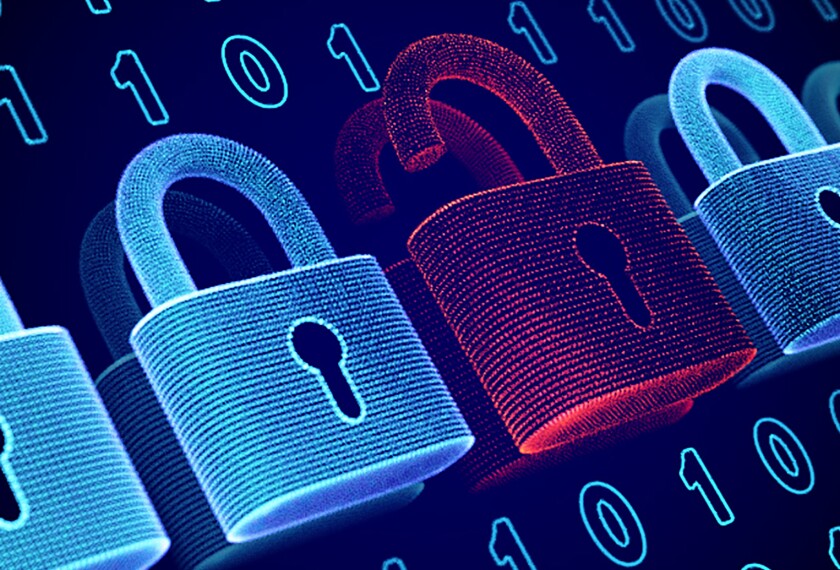Momentum at the state and federal levels has been building toward regulating how social media companies handle minors’ data and design their products for young people.
But will that momentum continue under the new Trump Administration and majority Republican U.S. Congress? And what does this ultimately mean for schools?
Among Trump’s first actions on this front was signing an executive order on inauguration day pausing a ban on the social media site TikTok, which is owned by Chinese technology company ByteDance. The ban, which passed Congress and was signed into law by then-President Joe Biden last year, was focused on national security, and it highlighted concerns over how social media companies collect data and curate content.
In signing his executive order to pause the U.S. ban on TikTok, President Donald Trump remarked that protecting young people’s data from China is likely not a high priority.
“TikTok is largely young people,” said Trump, who unsuccessfully tried to ban TikTok during his first term before changing his stance during the 2024 election and joining the platform. “And remember, TikTok is largely about kids, young kids. If China’s going to get information about young kids, I don’t know. To be honest with you, I think we have bigger problems than that.”
Those comments come in the wake of former President Biden’s parting words shortly before he left office of an emerging “tech industrial complex” that he said could exert too much control over policymaking in the United States. Biden’s warning, combined with Elon Musk’s growing influence in the White House and tech CEOs like Meta’s Mark Zuckerberg forging stronger connections with Trump, have data privacy experts watching closely to see how things might change.
Data privacy experts still see strong federal support for protecting kids
About , according to surveys by the Pew Research Center.
For anyone concerned about protecting kids’ personal data on social media platforms, Trump’s statement might raise a few eyebrows. But experts in data privacy say that Trump’s remarks and early decision not to enforce the TikTok ban do not mean that young people’s social media protections won’t be a high priority for federal policymakers.
“I think it’s too early to say honestly,” said Amelia Vance, the president of the Public Interest Privacy Center, a nonprofit that works on student data privacy issues. “We do have lots of examples of very recent support from the Trump camp” for federal initiatives to regulate social media and protect young people’s data.
For example, she said Donald Trump Jr., Vice President JD Vance, and Musk, an adviser to Trump and the owner of the social media platform X, have all shown support in various ways for the . Vance was among dozens of cosponsors on the bill, and Musk has advocated for the legislation that passed the Senate in August with strong bipartisan support.
Even so, Vance of the Public Interest Privacy Center said Trump can be unpredictable.
“We know from the previous administration that whatever particular person has the president’s ear on certain issues can sometimes sway what he decides is the best path forward,” she pointed out.
The Kids Online Safety Act focuses on protecting young users from potential harms on social media. It requires social media companies to give minors more options to protect their personal information and take meaningful steps to prevent young users from accessing content that increases the risk of self-harm, such as eating disorders or online bullying. KOSA passed as part of a legislative package that included the Children and Teens’ Online Privacy Protection Act, or COPPA 2.0, which updates and extends privacy protections for children from the original 1998 federal online privacy law.
Opponents of the Kids Online Safety Act argue that it violates the First Amendment and that it could be used to restrict kids’ access to information on reproductive rights and LGBTQ+ issues. The Public Interest Privacy Center supported COPPA 2.0 but had reservations about KOSA.
Although the measure passed the Senate 91-3, it stalled in the House, failing to get a full hearing before a new Congress was sworn in in early January. But that doesn’t mean it’s over for the legislation, or lawmakers’ interest in protecting minors’ data privacy and well-being online, said Ariel Fox Johnson, a senior adviser for data privacy at Common Sense Media. The nonprofit, which focuses on the impact of technology on young people, has advocated for passing both bills.
“I think it’s going to be a continuing issue of bipartisan concern,” she said. “You know, lawmakers have children and students in their families and in their circles and understand how much time everyone spends on technology.”
But regarding Trump’s remarks that the overall youthfulness of TikTok’s user base makes it less of a national security concern, Vance said that young people’s data shouldn’t be viewed that way.
“Letting bad actors inappropriately collect or use children’s data certainly creates a weaker data privacy ecosystem for everyone,” she said. And as children explore different political ideas, religious positions, or points of view online, that can add up to a data profile that could be leveraged against them, Vance said.
“There are potential national security implications down the road as that child grows into an adult and maybe ends up being trusted to protect the country’s interests and protect our secrets,” she said.
How the push to protect kids’ data affects schools
So, what does this mean for schools?
A greater federal focus on protecting kids’ data both through KOSA and COPPA 2.0—which would raise the age at which companies can collect data without users’ consent from 12 to 17—could affect how education technology companies handle students’ data, said Vance. There are also many student privacy laws at the state level, she added.
“We don’t lack laws, we lack common understanding about those laws,” she said. “We lack people knowing that there are rights they could exercise. We lack the resources for enforcers to make sure that those laws are taken seriously. Part of the value of a national focus of a national law is centralizing: here are what the rules are, and here is what will happen if you don’t follow the rules.”
Whatever actions policymakers may take to protect the data privacy of minors, schools have important roles to play in educating students about protecting their own data on social media, according to Vance and Fox Johnson. And that role has become even more important with recent advances in artificial intelligence.
“We all have to live in a world where we understand how our data’s being used,” said Vance. “I’ve talked to districts about pushing kids to question AI. What information is being collected? And then how are they taking and leveraging my data? Do they actually need that much? How can I change settings or otherwise adapt my daily practice?”
69´«Ă˝ should also provide parents with resources to help teach students how to be savvy digital citizens, she said.
AI literacy also includes educating students about how the technology and their personal data are used in education technology tools, said Fox Johnson.
“Education is really important and a critical component, but it can’t be the only thing,” said Fox Johnson. “That’s why it’s important that lawmakers do continue to be interested in putting in place data privacy protections.”






